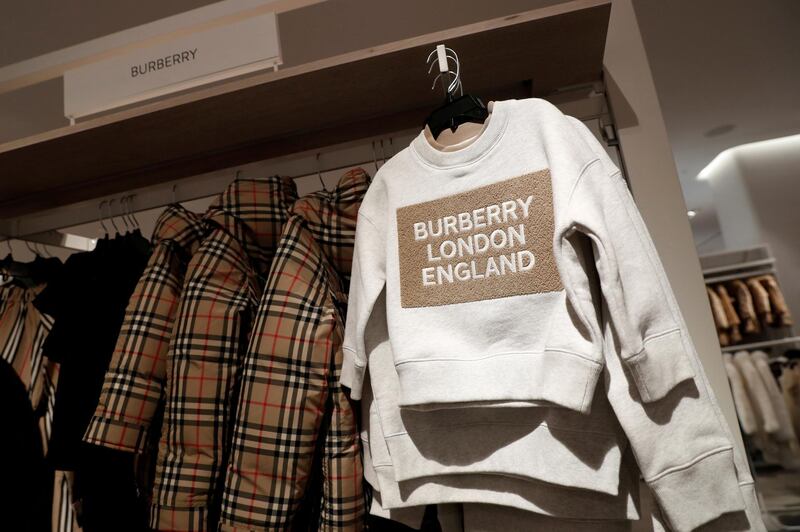Burberry scrapped its financial guidance for the year, warning that the coronavirus epidemic has wiped out three-quarters or more of sales at stores in China.
The British fashion house said on Friday that it has closed 24 of its 64 shops on the mainland. Chinese department stores selling the company’s products have also seen significant declines in customer visits and many have reduced hours as the authorities imposed quarantine measures.
The shares fell as much as 4.8 per cent in early London trading on Friday.
Over the past two weeks, sales at mainland stores that remain open have declined 70 per cent to 80 per cent, chief financial officer Julie Brown said. Because of uncertainty over how long the outbreak will last and how much it will spread, the company said it can’t stand by previous forecasts for the fiscal year ending in March.
It’s one of the most dramatic illustrations so far of the effects of the virus on global brands, with the luxury-goods industry particularly exposed. Cosmetics companies L’Oreal and Estee Lauder said that they expect temporary setbacks in China.
Burberry’s warning is likely “the first of a string of painful announcements,” Sanford C Bernstein analyst Luca Solca said by email. The updates will probably be “even more painful for those companies in transition.”
The hit to sales comes at a sensitive time for the trenchcoat maker, which has embarked on a style revamp under new designer Riccardo Tisci.
Burberry said the response to his new lines has been favourable and it’s sticking with plans to update stores and roll out new products with his aesthetic despite the virus.
“We are protecting investment in the business as we see this as a transitory issue,” Ms Brown said in an interview.
In January, just before the coronavirus exploded into an epidemic, Burberry raised its forecast for full-year sales from roughly flat to low single-digit growth. Ms Brown said that forecast is now out of date.
Like many luxury companies, Burberry is highly dependent on China’s shoppers, who account for about 40 per cent of sales. About half of that spending occurs at home, with the rest coming during trips abroad.
Even before the virus emerged near the end of last year, Burberry was reeling from the effects of anti-Beijing protests in Hong Kong, which cut sales in the territory by half over the Christmas quarter.
The spread of the virus and the travel restrictions, including the cancellation of many flights from Europe and North America to China, have jeopardised a Burberry fashion show scheduled for Shanghai in April. A spokesman said Burberry was monitoring the situation.
First-quarter performance from luxury companies will likely be “very bad” because of the coronavirus, Jefferies analyst Flavio Cereda wrote in a note to clients, citing the slump in travel, store closures and other factors.
While consumers continue to shop online from home, quarantine measures have reduced the potential benefit by complicating deliveries, said Ms Brown.
Chinese shoppers are still spending abroad, she said, “but with the widening travel restrictions, this will worsen.”
Burberry said it will issue a sales update by mid-April, ahead of full results scheduled for May.







